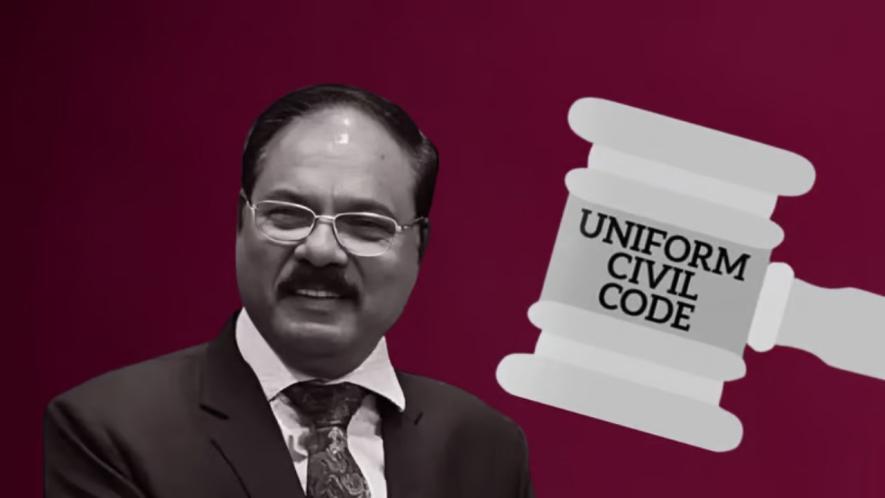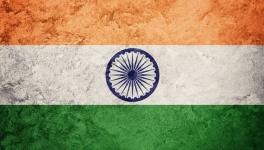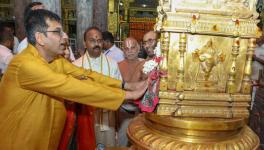UCC, Justice Yadav, a New Normal and a Dare

Article 44 of the Constitution of India postulates that the “State shall endeavour to secure for the citizens a uniform civil code [UCC]”. As late as 2017, the 21st Law Commission of India opined that a UCC is “neither necessary nor desirable at this stage”.
The present law commission is in the process of public consultation to formulate a UCC that justifies a debate on it. However, any public dialogue on UCC often turns into an occasion to bash and overbear minorities. A la Justice Shekhar Yadav of Allahabad High Court, this is taken to a new level of rabid communal incendiary.
For the real flavour of debate, let us take marriage and divorce. In Hindu law, a marriage is a sacred tie for janm janmantar (for many rebirths). In Shastric Hindu law, there was no concept of divorce. It was introduced only in 1956 for the first time, that too on limited grounds.
The present law commission is in the process of public consultation to formulate a UCC that justifies a debate on it.
If these grounds are contested, the proceedings may go on for years and yet not fructify in divorce. In Muslim law, the marriage is a contract. Either of the spouses can call it off at any time without assigning any reason. There are no contested divorces in Muslim law except sporadic litigation about alimony. What would be the regime for divorce in a UCC?
In Western countries, where there are UCCs, marriage is not treated by law as a sacred tie even for Hindu inhabitants. It is considered as a very personal affair between couples and divorce is available legally as easy as medicine across the counter.
It would be a moot question whether this would be acceptable to Hindu society at large. There are no data or studies about Hindu spouses suffering a bad marriage just because one spouse has opted to contest the divorce.
Likewise, there are no data or studies that if at all the Muslim community seeks a departure from easy divorce. What is at stake for the State to make marriage and divorce common for Hindus, Muslims and other communities in a diverse country like ours? So on and so forth goes on the debate on the other topics of personal law like succession and adoption. The much-touted UCC legislated by Uttarakhand is a poor apology for UCC as it does not address any of the fundamental issues.
For this debate, there is nothing wrong with the library of the Allahabad Bar Association being the forum for a pro-Hindu organisation such as the Vishwa Hindu Parishad. The Bar must have all points of view on all topics. There is nothing wrong with a judge being invited to share an academic perspective as part of a healthy debate.
However, what emerged was coarse hate speech disguised as criticism of ‘their’ laws and ways. A set of vicious communal invectives paraded with cudgels for ‘them’ to join the UCC. The contents of the new UCC as envisaged by Justice Yadav are not spelt out. As the hate was an end by itself, it is corrosive to recall any of the nuggets thrown by Justice Yadav.
It is reported that in the course of interaction with the collegium of the Supreme Court of India, Justice Yadav stuck to the words spoken, choice of phrases and the thoughts shared in this speech. In the course of the preliminary enquiry thereafter through the Chief Justice of the Allahabad High Court, Justice Yadav appears to have chosen to abide by the entire speech.
According to Justice Yadav, there is no conduct unbecoming of a judge to undermine public confidence and faith or violation of the Restatement of Values, 1997. So appears a dare ‘Do what you can!’.
According to Justice Yadav, there is no conduct unbecoming of a judge to undermine public confidence and faith or violation of the Restatement of Values, 1997. So appears a dare ‘Do what you can!’.
The criticism by the chief minister of Uttar Pradesh of the critics of Justice Yadav may give rise to an inference that Justice Yadav enjoys the blessings of the executive for the cause. The proposal to impeach Justice Yadav is a non-starter. Even if it sneaks into the Parliament, it is doomed to fail.
The transfer of Justice Yadav to another high court may or may not be approved if at all seen as punitive. A reprimand or caution may make Justice Yadav a bigger hero in the eyes of the trolling constituency addressed.
It has always been a vexed question as to how to deal with misdemeanour of judges of higher judiciary short of impeachment. However, precedents abound for withdrawal of judicial work till the internal enquiry is completed.
Imagine that the Supreme Court of India does not act any further. It is a new normal that shall dare us all.
Pallav Shishodia is a senior advocate at the Supreme Court of India.
Get the latest reports & analysis with people's perspective on Protests, movements & deep analytical videos, discussions of the current affairs in your Telegram app. Subscribe to NewsClick's Telegram channel & get Real-Time updates on stories, as they get published on our website.
























